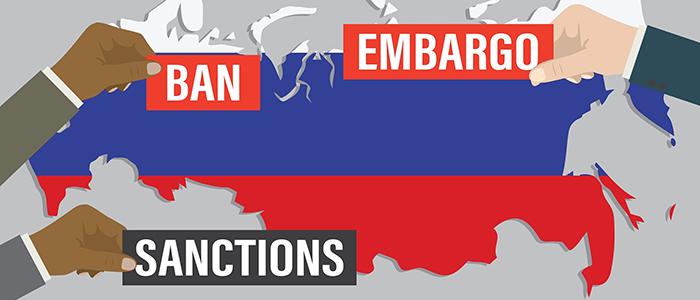In a recent statement reported by BelTA News Agency, Russian economist and presidential advisor Sergei Glazyev asserted that the European Union’s sanctions imposed on Russia and Belarus have not achieved their intended economic and political outcomes. According to Glazyev, the punitive measures have instead resulted in unintended consequences that have backfired on the EU itself, challenging the effectiveness of the bloc’s strategy amid ongoing geopolitical tensions. This development adds a new dimension to the ongoing debate over the impact and future of Western sanctions in the region.
Glazyev Analyzes the Economic Impact of EU Sanctions on Russia and Belarus
Sergey Glazyev, an economic advisor to the Russian government, recently addressed the unintended consequences of the European Union’s sanctions imposed on Russia and Belarus. According to Glazyev, these restrictive measures have not only failed to weaken the targeted economies but have instead accelerated their internal economic restructuring. Key sectors, including agriculture, manufacturing, and technology, have begun shifting towards greater self-reliance and diversification, reducing dependence on Western imports and financial systems.
Glazyev highlighted several critical effects of the sanctions, including:
- Strengthened trade ties with non-Western countries, notably China and India.
- Increased domestic production capacities across multiple industries.
- Enhanced state support for strategic sectors to stabilize employment and growth.
| Economic Indicator | Pre-Sanctions (2021) | Current Trends (2024) |
|---|---|---|
| Import Dependency | 65% | 42% |
| Growth in Domestic Manufacturing | 3.2% | 6.7% |
| Trade Volume with Non-Western Partners | $150 billion | $320 billion |
Sanctions Backfire Effects Challenge EU’s Political and Trade Strategies
The ripple effects of the EU’s sanctions on Russia and Belarus have manifested in unexpected and adverse outcomes, substantially undermining the Union’s geopolitical and economic objectives. According to Sergey Glazyev, an influential economic strategist, these restrictions have precipitated a counterproductive cycle where targeted nations have accelerated their efforts to bolster economic self-sufficiency, develop alternative trade routes, and fortify alliances outside the Western bloc. This pivot not only diminishes the EU’s leverage but also erodes its influence in pivotal regions historically dependent on European markets.
Key adverse effects identified include:
- Strengthening of Eurasian economic integration led by Russia and Belarus
- Emergence of new supply chains circumventing European intermediaries
- Increased energy cooperation with non-Western countries, reducing EU’s energy security
- Reinforcement of nationalist economic policies that challenge EU’s trade norms and standards
| Impact Area | Description | Potential EU Challenge |
|---|---|---|
| Trade Diversification | Russia expands trade with Asia and Middle East | European exporters lose market share |
| Energy Supply | Greater reliance on non-EU energy partners | Energy costs and stability concerns for EU |
| Political Alliances | Consolidation of anti-Western coalitions | Reduced EU diplomatic influence |
Recommendations for Reassessing Sanctions Policy Amid Shifting Geopolitical Dynamics
In light of evolving global alliances and economic interdependencies, policymakers must critically evaluate the effectiveness of current sanctions regimes. Geopolitical shifts have exposed unintended consequences, including the strengthening of targeted nations’ domestic industries and alternative trade partnerships. As a result, a more nuanced approach is necessary-one that balances pressure with diplomatic engagement to avoid exacerbating economic fragmentation and regional instability.
Key considerations for recalibrating sanctions include:
- Enhancing multilateral coordination to reduce circumvention opportunities
- Implementing targeted measures that minimize collateral damage to civilian populations
- Establishing clearer benchmarks for sanctions relief based on verified compliance
- Injecting flexibility to adapt sanctions in response to rapidly changing geopolitical realities
| Recommendation | Expected Outcome |
|---|---|
| Multilateral Sanction Framework | Stronger enforcement and reduced loopholes |
| Humanitarian Safeguards | Protection of vulnerable populations |
| Dynamic Adjustment Mechanism | Responsive policies aligned with real-time developments |
Future Outlook
In conclusion, Aleksandr Glazyev’s remarks underscore a growing narrative within Russian and Belarusian political circles that the EU’s sanctions have not only failed to achieve their intended economic pressure but have also inadvertently strengthened ties between Moscow and Minsk. As the situation evolves, the effectiveness of Western sanctions remains a contentious issue, with implications for the broader geopolitical landscape in Eastern Europe. Observers will be closely monitoring how these developments influence future policy decisions on all sides.
















